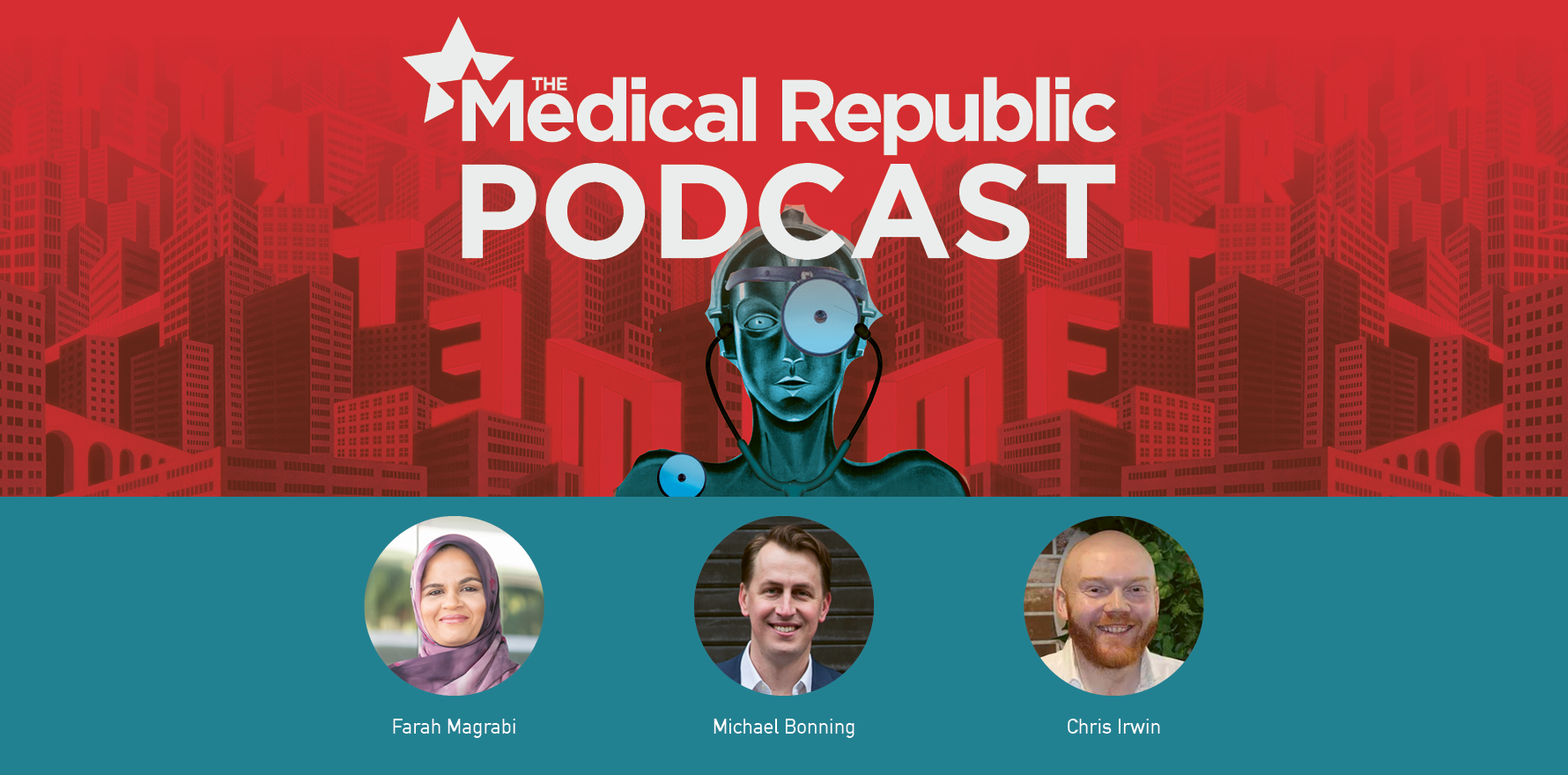Future overlords or just really helpful assistants?
ChatGPT has shaken us all up a bit. It’s both tempting and mildly unsettling, but what does it mean for healthcare?
In this episode of The Medical Republic Podcast we dig into the world of health robots and ask what does the future hold: will GPs be replaced by AI or just taken to court because they relaxed their duty of care in favour of a large language model?
AI safety expert Professor Farah Magrabi did a PhD years before ChatGPT made AI a hot topic. She is now is professor of biomedical and health informatics at the Australian Institute of Health Innovation at Macquarie University and is instrumental in the Australian Alliance for AI for Healthcare.
Professor Magrabi says there’s vast opportunity for AI to do good but that the use in healthcare of consumer-grade technology – like ChatGPT – is a problem.
“Nobody’s really systematically studied it for clinical purposes, so that’s where we need to be careful. When consumer-grade systems are starting to be used for clinical purposes, what we’re saying is to just pause a little bit. Let’s think about what’s really going on.
“If you’re using a transcription program, what you’re putting in is what you’re getting out. However, the minute you start using AI to summarise information, on the surface the system may look really accurate, but you don’t know if it’s been tested for example, for rare conditions,” she said.
The AMA are across the potential problems and have made a submission to recent government consultation hub on responsible AI in Australia.
Dr Michael Bonning is a GP and the president of the AMA NSW. He joins us to share the AMA position which supports medical and technological advances but also calls for regulation and equity.
“The AMA is a supporter of advancement, technological advancement in healthcare, especially when it remains as part of a set of tools that support clinical decision making, empower patient choice, and ensure that doctors and patients can work together better.
He says AI can mostly offer support for backend functions.
“It’s not just going to be the diagnostic front end, which everyone gets very hyped up about. It’s actually going to be a lot of the administrative and supportive framework.
Our third guest is a GP who has taken matters into his own hands. Dr Chris Irwin co-founded an AI enabled app for GPs, with his colleague Dr Umair Masood.
Consultnote.ai is a desktop app that uses generative AI to summarise notes and provide advice on diagnoses. Dr Irwin says it could revolutionise the way GPs practice medicine and make the patient, not the computer, the focus of consultations.
“Ironically, it’s a bit like how doctors would practice in the 19th or earlier 20th centuries before item numbers, bureaucracy and legalities got in the way of caring – where the focus of a consultation was the patient,” he said.
Dr Irwin is confident the app will add value to doctors’ lives but is remarkably Zen about whether it will make him rich and famous.
“I don’t really care as much as to whether my app happens or whether something else happens. It’s the technology and the progress that I’m so interested in. Also, the value of using this technology to help registrars and training. Those are the two things that I’m super excited about.
“I hope the app succeeds but, whether it does or not, what I’m more concerned about is breaking ground and just ushering in like a new era. That’s the really exciting thing for me.”
You can listen and subscribe to the show by searching for “The Medical Republic” in your favourite podcast player.





